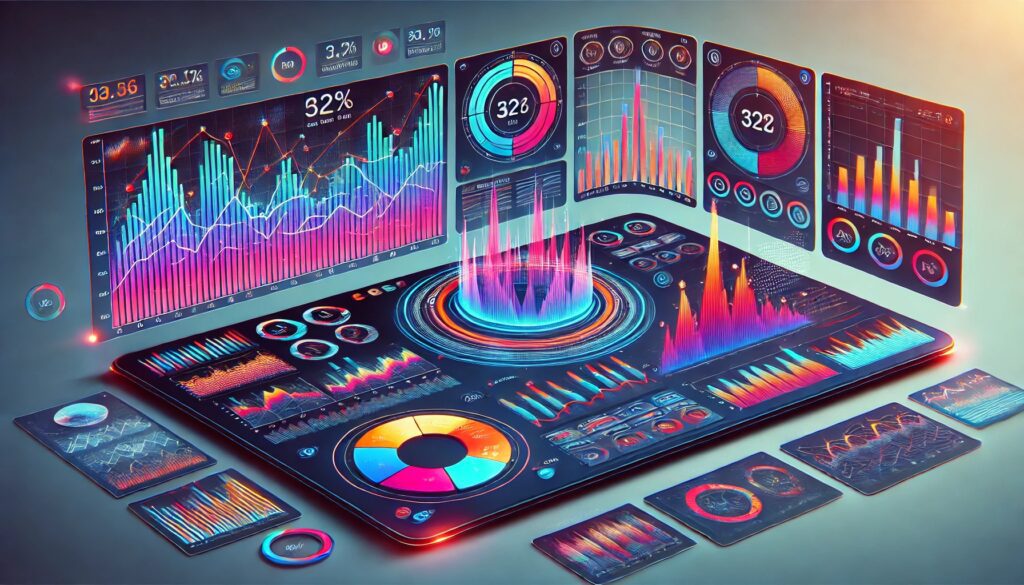
The recent data breach involving National Public Data (also known as Jerico Pictures) has sent shockwaves across the globe. With the personal information of an estimated 2.9 billion individuals reportedly leaked onto the dark web, this incident has not only exposed a massive number of people to potential cyber threats but also raised critical questions about the ethics of data collection, corporate responsibility, and the future of data privacy.
Understanding Data Scraping: The Method Behind the Breach
At the heart of this breach lies a controversial practice known as data scraping. Unlike traditional data collection methods, where users voluntarily provide their information, data scraping involves the automated extraction of information from online and non-public sources. This can include anything from social media profiles to governmental databases. In this case, National Public Data is alleged to have scraped vast amounts of personally identifiable information (PII) without the knowledge or consent of the individuals affected.
The legality of data scraping is murky at best. While scraping public data is generally legal in many jurisdictions, the ethical implications are debatable, particularly when the data is obtained from non-public sources or used in ways that individuals did not anticipate or consent to. This breach exemplifies the dangers of such practices, as it underscores how vast amounts of sensitive data can be collected, stored, and ultimately exposed.
The Dark Web: A Marketplace for Stolen Data
The dark web is an encrypted part of the internet that is not indexed by traditional search engines. It is often associated with illegal activities, including the sale of stolen data, illicit drugs, weapons, and more. In this case, the cybercriminal group ASDoD allegedly listed the stolen data from National Public Data for sale, asking $3.5 million for a database that includes the personal information of nearly 3 billion people.
This breach has likely fueled the already thriving underground market for stolen data. Cybercriminals who purchase such data can use it for various malicious activities, such as:
- Identity theft: Using stolen information to open credit accounts, file fraudulent tax returns, or commit other forms of fraud.
- Phishing scams: Crafting targeted phishing attacks to trick individuals into revealing additional sensitive information or financial credentials.
- Extortion: Threatening to release private information unless a ransom is paid.
The sheer volume of data exposed in this breach could lead to a global surge in these types of criminal activities, affecting billions of people.

Corporate Responsibility and Accountability: The Case Against National Public Data
The class action lawsuit against National Public Data is likely to become a landmark case in the realm of data privacy and corporate accountability. The plaintiffs argue that the company failed to secure the massive amounts of data it collected, leading to one of the most significant breaches in history.
This case raises several pivotal questions:
- How much responsibility do companies have in protecting scraped data? While companies like National Public Data may argue that they followed legal protocols in data collection, the breach demonstrates a failure to secure that data adequately. This could lead to a re-evaluation of data security standards and stricter regulations for companies handling such vast amounts of information.
- What legal consequences should companies face for unauthorized data collection? The practice of scraping non-public data without consent is ethically dubious and potentially illegal. The outcome of this lawsuit may set a precedent for how such practices are treated in court and could lead to stricter legal frameworks governing data collection.
- What are the ethical obligations of companies that collect personal data? Beyond legal considerations, companies must grapple with the ethical implications of collecting, storing, and potentially exposing personal information. This breach highlights the need for a code of ethics in data management that prioritizes the privacy and security of individuals.
This breach is a stark reminder that in the digital age, our personal information can be weaponized against us. With billions of records exposed, the consequences are likely to be felt for years to come
— Cybersecurity Expert
The Long-Term Impact on Data Privacy
This breach is more than just a wake-up call; it may be a turning point in how data privacy is approached globally. In the aftermath of this incident, there could be a significant push toward:
- Stronger data protection regulations: Governments may introduce new legislation or tighten existing laws to ensure that companies are held accountable for data breaches, especially when the data was collected without consent.
- Greater transparency in data collection: Companies might be required to disclose their data collection practices more transparently, allowing individuals to understand how their information is being used and stored.
- Enhanced security measures: The sheer scale of this breach could lead to widespread adoption of more advanced security technologies, such as encryption, multi-factor authentication, and AI-driven threat detection, to protect sensitive data.
- Increased public awareness: As more individuals become aware of the risks associated with their personal information, there may be a shift in how people share their data online. Digital literacy and awareness programs could become more prevalent, educating users on how to protect their privacy.
The Ethical Debate: Consent, Privacy, and Data Ownership
One of the most profound issues highlighted by this breach is the ethical debate surrounding data ownership and consent. The fact that billions of people were unaware that their data was being collected and stored by National Public Data raises serious ethical concerns:
- Consent: At the core of this issue is the principle of consent. When companies scrape data without the knowledge of the individuals involved, they violate the fundamental right to privacy. This breach may prompt a reevaluation of consent mechanisms, ensuring that individuals have more control over their personal information.
- Data Ownership: The question of who owns data is increasingly relevant in the digital age. Should individuals have ownership over their data, even if it is publicly available? This breach could lead to discussions about the legal rights of individuals to control and protect their data.
- The Role of Regulation: As data becomes one of the most valuable commodities in the world, the role of regulation in protecting individuals’ privacy becomes even more critical. This breach could accelerate efforts to establish global standards for data protection, ensuring that individuals’ rights are upheld regardless of where they live.
Conclusion: A Call for Change
The breach involving National Public Data and the exposure of 2.9 billion individuals’ personal information is a watershed moment in the ongoing struggle to protect data privacy. As the legal, ethical, and practical implications continue to unfold, it is clear that this incident will have far-reaching consequences for how personal information is collected, stored, and secured.
The outcome of the lawsuit, the response from regulators, and the public’s reaction will shape the future of data privacy. This breach should serve as a catalyst for change, driving the adoption of stronger data protection measures, ethical data collection practices, and greater transparency in how personal information is handled.
For now, individuals must remain vigilant, taking proactive steps to protect their personal information, while companies and governments work to create a safer and more secure digital environment. The lessons learned from this breach could ultimately lead to a more responsible and ethical approach to data management, ensuring that the rights and privacy of individuals are respected in an increasingly connected world.
This article is part of our ongoing coverage of cybersecurity and data privacy. Stay tuned for updates as the story develops.
Resources
1. Data Breaches and Cybersecurity
- Verizon Data Breach Investigations Report (DBIR)
- An annual report that provides an in-depth analysis of data breaches and cybersecurity incidents globally, offering insights into trends, causes, and impacts.
- Identity Theft Resource Center (ITRC)
- A non-profit organization that provides resources and support for victims of identity theft and data breaches. The ITRC also tracks data breaches and offers advice on protecting personal information.
2. Legal Aspects of Data Privacy
- General Data Protection Regulation (GDPR) Overview
- A comprehensive resource on the European Union’s GDPR, which sets a high standard for data protection and privacy. It provides information on the rights of individuals and the obligations of organizations handling personal data.
- Electronic Frontier Foundation (EFF)
- A leading organization defending civil liberties in the digital world. The EFF offers insights into data privacy laws, legal cases, and advocacy efforts aimed at protecting personal information.
3. Ethical Considerations in Data Collection
- The Markkula Center for Applied Ethics: Big Data Ethics
- This center provides resources and discussions on the ethical implications of big data, including the ethics of data scraping, privacy concerns, and consent.
- Data Ethics Framework by the UK Government
- A framework that guides organizations on the ethical use of data, emphasizing transparency, accountability, and respect for individuals’ rights.
4. Protecting Personal Information
- Federal Trade Commission (FTC) Consumer Advice on Identity Theft
- The FTC offers comprehensive advice on preventing identity theft, recognizing the signs, and recovering from it. It also provides resources on dealing with data breaches.
- Have I Been Pwned?
- A free resource that allows individuals to check if their personal information has been compromised in a data breach. The site also offers advice on securing accounts and preventing further exposure.
5. Current News and Updates
- Krebs on Security
- A blog by cybersecurity expert Brian Krebs that provides in-depth analysis and updates on cybersecurity issues, including data breaches, cybercriminal activities, and digital privacy concerns.
- The Hacker News
- A leading cybersecurity news platform that covers the latest news on cyber threats, data breaches, and digital security best practices.
6. Government and International Resources
- National Institute of Standards and Technology (NIST) Cybersecurity Framework
- A framework that helps organizations understand and manage cybersecurity risks. NIST offers guidelines and best practices for securing data and preventing breaches.
- European Data Protection Board (EDPB)
- The EDPB oversees the consistent application of data protection rules across the EU, including GDPR compliance. It provides resources and updates on data privacy regulations.
These resources provide a broad spectrum of information and support, from understanding the legal and ethical implications of data breaches to practical advice on protecting personal information and staying informed about cybersecurity developments.





